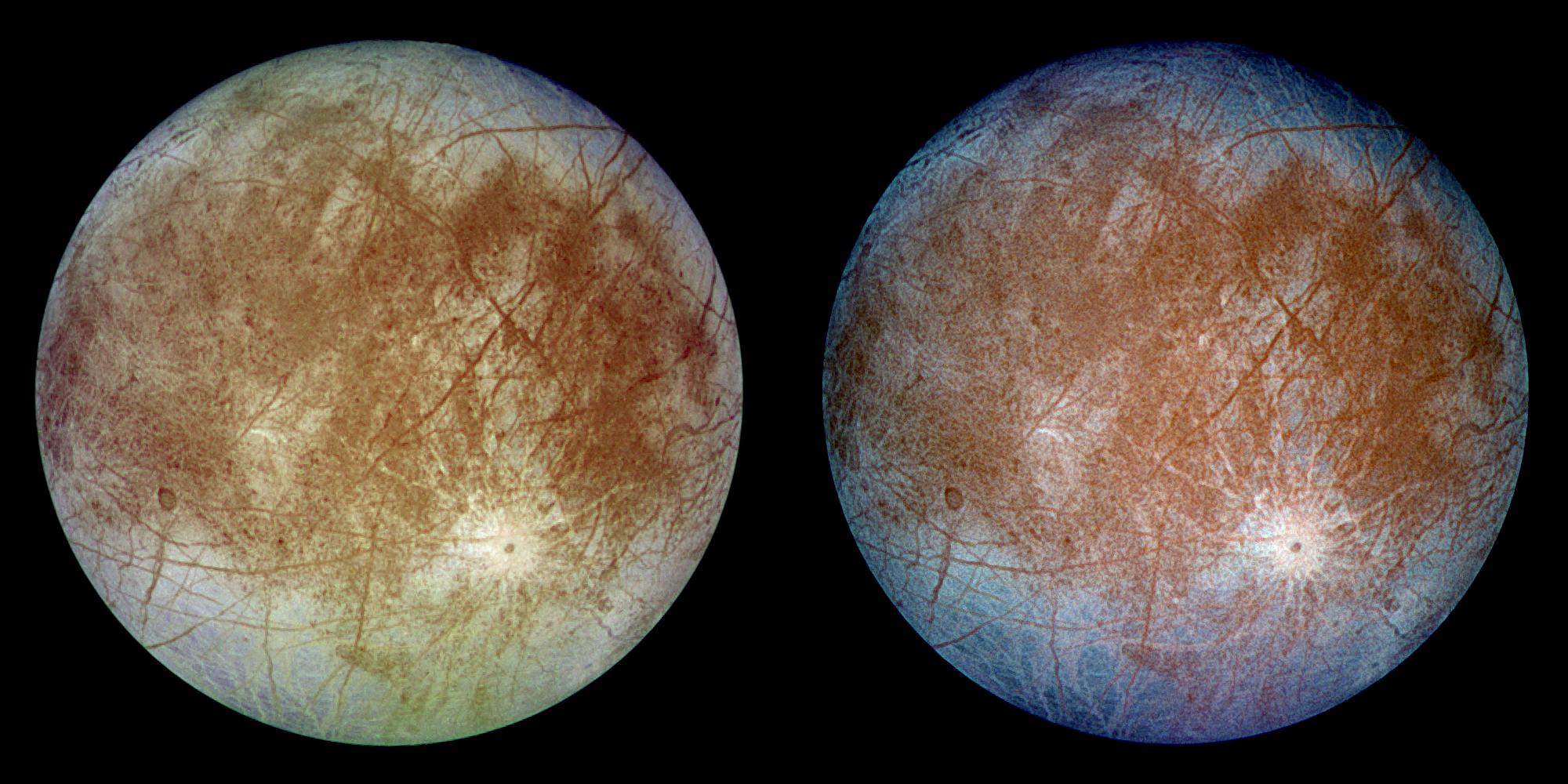
NASA is asking the scientific community to help it devise a relatively low-budget mission to Jupiter's moon Europa, perhaps the solar system's best bet to host alien life.
The space agency announced Monday (April 28) that it has issued a Request for Information (RFI), officially seeking ideas from outside researchers for a mission to study Europa and its subsurface ocean for less than $1 billion (excluding the launch vehicle).
"This is an opportunity to hear from those creative teams that have ideas on how we can achieve the most science at minimum cost," John Grunsfeld, associate administrator for the NASA Science Mission Directorate at the agency's headquarters in Washington, said in a statement. [Photos of Europa, Jupiter's Icy Moon]

"Europa is one of the most interesting sites in our solar system in the search for life beyond Earth," Grunsfeld added. "The drive to explore Europa has stimulated not only scientific interest but also the ingenuity of engineers and scientists with innovative concepts."
The deadline to submit ideas under the RFI is May 30, officials said.
At 1,900 miles (3,100 kilometers) wide, Europa is only slightly smaller than Earth's moon. The Jovian satellite harbors a large ocean of liquid water beneath its icy shell, providing a potential habitat for life as we know it.
Further, astronomers announced in December that they had detected a plume of water vapor erupting from Europa's south polar region, suggesting that a mission to the moon may be able to collect samples from the ocean without even touching down.
Get the Space.com Newsletter
Breaking space news, the latest updates on rocket launches, skywatching events and more!
NASA researchers have developed a number of Europa concept missions over the years, including one called the Europa Clipper that would perform multiple flybys of the moon. None of these are officially on the books, however. (The Europa Clipper may be the frontrunner at the moment, but its estimated $2 billion price tag would have to come down considerably for it to get off the ground, space agency officials have said.)
But the space agency has gotten some money to help develop technologies needed for a Europa mission. Congress appropriated $80 million for this purpose last year, and the White House allocated $15 million more in its federal budget request for fiscal year 2015.
NASA officials have said that they hope to launch a Europa mission in the mid-2020s. If that happens, the mission would follow closely on the heels of Europe's JUpiter ICy moons Explorer mission, or JUICE, which is currently scheduled to blast off in 2022 to study the Jovian satellites Callisto and Ganymede in addition to Europa.
Follow Mike Wall on Twitter @michaeldwall and Google+. Follow us @Spacedotcom, Facebook or Google+. Originally published on Space.com.
Join our Space Forums to keep talking space on the latest missions, night sky and more! And if you have a news tip, correction or comment, let us know at: community@space.com.

Michael Wall is a Senior Space Writer with Space.com and joined the team in 2010. He primarily covers exoplanets, spaceflight and military space, but has been known to dabble in the space art beat. His book about the search for alien life, "Out There," was published on Nov. 13, 2018. Before becoming a science writer, Michael worked as a herpetologist and wildlife biologist. He has a Ph.D. in evolutionary biology from the University of Sydney, Australia, a bachelor's degree from the University of Arizona, and a graduate certificate in science writing from the University of California, Santa Cruz. To find out what his latest project is, you can follow Michael on Twitter.